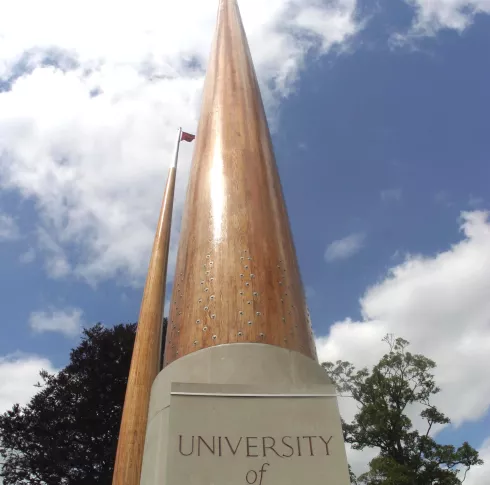
Unlock a world of possibilities with our one-of-a-kind part time master's programme. Experience the freedom to choose from different disciplines, tailoring your education to your ambitions. Embrace the flexibility of a part-time schedule, allowing you to balance your studies with other commitments. And the best part? There's no need to write a thesis to achieve this Level 9 Major Award.
Embark on a transformative journey that empowers you to shape your future without limitations with our Master of Professional Practice (MPP). Where to begin, begins with you...
Missed our recent webinar on MPP? Check out the video recording from this session.
DOWNLOAD MPP FLYER HERE.
CONTINUE | 60 CREDITS

COMPLETE | 90 CREDITS

When does this programme start?)
The spring iteration of this programme starts in January. The autumn iteration of this programme starts in September. This is a part-time programme with many of our pathways are delivered online.
How many hours per week?
The weekly time commitment will be subject to the Professional Diploma that is chosen and can range from 8 to 15 hours per week.
How are learners assessed on this programme?
Assessment is subject to the Professional Diploma that is chosen. Our Professional Diplomas are assessed through a mix of approaches such as terminal exams, continuous assessment projects and assignments.
I've completed Professional Diplomas elsewhere outside of University of Limerick. Can I use these to stack into the MPP?
Yes. You can stack two Professional Diplomas from UL or elsewhere (at least 60 ECTS Credits at Level 9) awarded elsewhere into the MPP. These must have been awarded in the last five years.
How will this programme benefit you the working professional?
There are many benefits to signing up for this programme, including increased job opportunities, higher earning potential, specialised knowledge, networking opportunities, as well as a personal achievement.
How will this programme benefit your employer?
An employee with a masters degree can bring many benefits to your organisation, such as a heightened level of expertise and specialisation, deeper analytical skills, advanced skills and techniques, and the ability to analyse complex problems and develop creative solutions. In addition to the specialist skills gained, your employee will develop their communication and leadership skills, allowing them to work more effectively with colleagues and manage projects. These qualities contribute to overall operations, increasing efficiencies and achieving business goals. Investing in your employee's professional education is a valuable investment in the long term, leading to increased skills, innovation, productivity, and organisational success.
How do I make an application?
Thank you for your interest in our new part-time stackable Master of Professional Practice. We're delighted that you're considering joining our programme to take your career to new heights. To make an application, you will need to follow these steps:
How to make an application
- Review all eligible programmes for Autumn 2023: In the Programme Overview section on this page, you'll find all the necessary information about each eligible programme. Take the time to explore each and select a programme that is of interest and value to you.
- Download and complete the Application Checklist form: Once you have familiarised yourself with your programme of choice, it's time to make your application. Download and complete this APPLICATION CHECKLIST. This form will gather essential details to help us with your application. We appreciate your attention to detail, as it will help us better understand your qualifications and aspirations.
- Apply online and submit supporting documents: Go to the top right-hand corner of this page and click APPLY NOW, ensuring you attach all supporting documents requested to evaluate your candidacy thoroughly.
- Once your application has been successfully submitted, our team will review it and be in touch to help you to the next step towards your career goals.
Who is leading this programme?
Professor Martin J. Hayes, BE, ME, PhD, MIEEE, MIEI, joined the University of Limerick (UL) in 1997. He has served in senior leadership roles for the last seven years, first as Head of the Department of Electronic and Computer Engineering, ECE. He is now a full Professor of Digital Technologies and Academic lead on the UL@Work Human Capital Initiative (HCI-Pillar3) programme. He leads this €16M project, resulting in approximately 30 new staff (20 academic and 10 professional services) being dispersed across Science, Engineering, Business, Arts, Humanities and Social Sciences. Martin has worked with the VP of Research and the Dean of Graduate Studies to leverage the relationships cultivated to advance UL’s strategic objectives over 20 years.
Through collaboration with ICT Skillnet, he has helped to build the Masters in AI and the SFI FUSE Centre for Research Training. This partnership has been identified repeatedly by SFI as exemplary. He has established a successful track record of HEA and Digital Europe-funded research in teaching innovation that will encourage the establishment of dual track, expanded placement and immersive programmes that are capable of sustaining a stable faculty growth strategy. Martin has developed strong internal networks and strategic alliances and is recognised nationally and internationally for his creative leadership and expertise. He is UL academic lead on the REBOOT-SKILLS and EAGLE Digital Europe projects in collaboration with a range of European universities (Oulu, Burgos, KU Leuven, Malta, Thessaloniki, Zagreb) and Digital Innovation Hubs, (Flandersmake, MADE, DIMECC and i~HD). Previously, Martin was head and director of the dynamic power management group that spanned both the Wireless Access and the Circuits and Systems Research Centres in ECE. Martin holds a BE in Electronic Engineering and an ME in Computer Systems from the University of Limerick, while his PhD in Automatic Control and Machine Learning is from Dublin City University. His research interests lie in the general area of Systems Theory, focusing on the intelligent use of system resources in cognitive manufacturing systems subjected to channel, sensor or operator-induced performance uncertainties.
He is a member (and previous chair) of the Signals and Systems subcommittee of the Royal Irish Academy. Martin’s research has been sponsored by Digital Europe, Science Foundation Ireland, The Higher Education Authority of Ireland, Enterprise Ireland, IRCSET (The Irish Research Council for Science and Technology), and Failte Ireland. As a funded investigator with the Confirm Smart Manufacturing centre, he has successfully attracted significant cash support from various companies, including Microsoft, Johnson & Johnson (as part of the Confirm Open Call), and SMEs in the form of Accucode AI, IQTech and Mobanode. In the Summer of 2022, Martin was selected by the Digital Economy, Recovery and Skills Unit at the European Commission (DG CONNECT) to lead a response by European Universities to the structured dialogue requested by European Commission President Von der Leyen on how best to respond to Europe’s ICT upskilling challenge.
Please feel free to reach out to our team on email, ulatwork@ul.ie if you have any questions. We are here to help and would be delighted to schedule a call with you to discuss your options in more detail.
Stack your learning with Microcreds: Not quite ready to commit to a full professional diploma? Consider trying a microcredential. You can stack your microcred credits towards a professional diploma at a later date. For more information go to Microcredentials | University of Limerick (ul.ie)
Graduate and Professional Studies
+353 (0)61 234377
University of Limerick, Limerick, Ireland
Contact Us | Download Prospectus | Sign up to stay informed | Quality and Feedback

